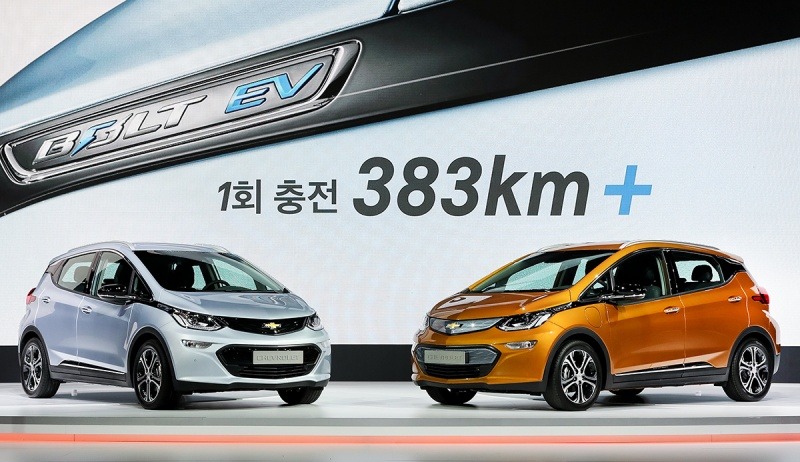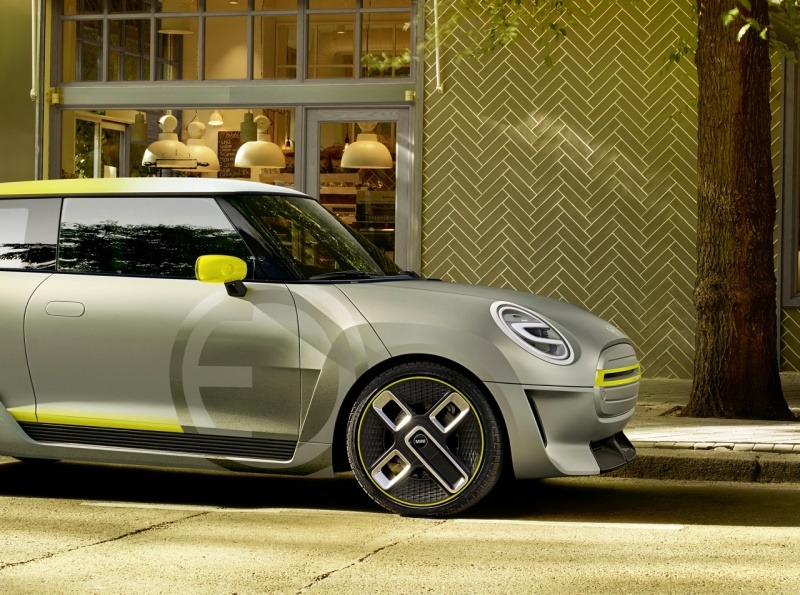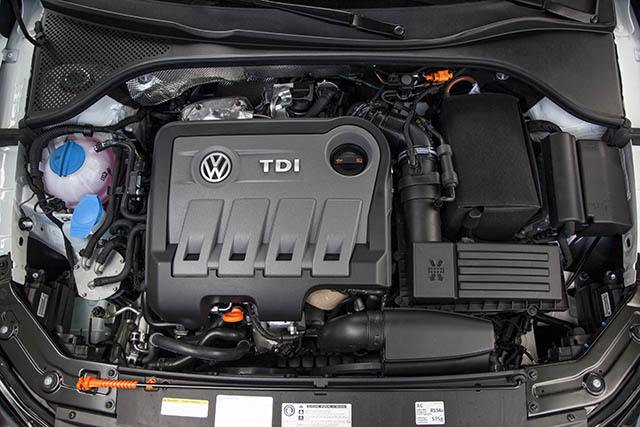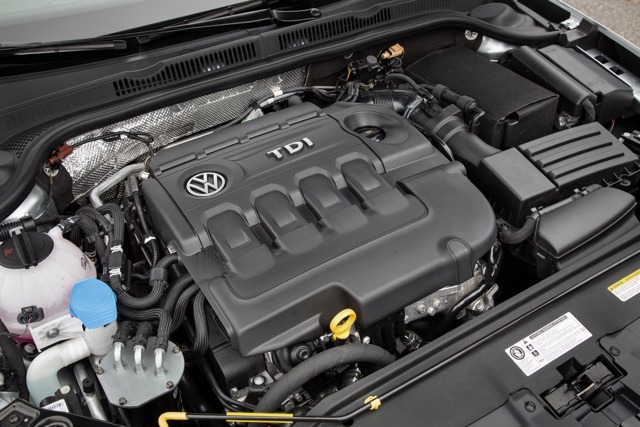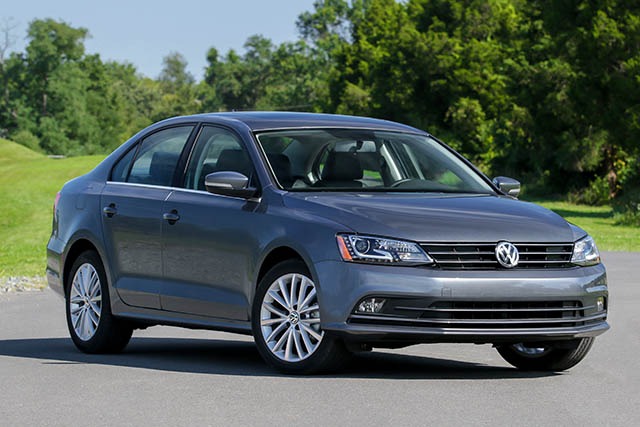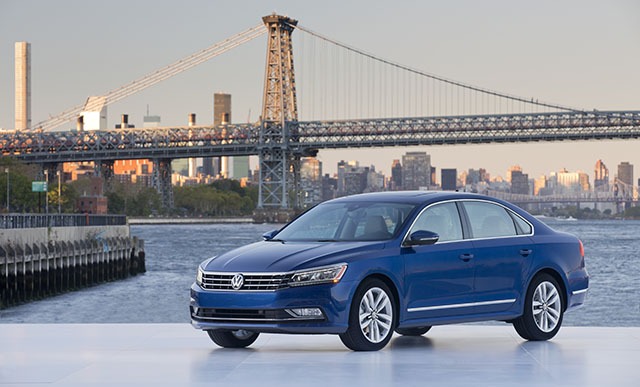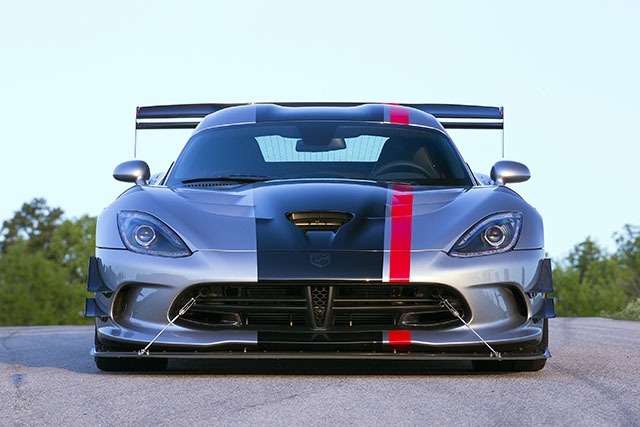Search the Community
Showing results for tags 'Deal'.
-
Details emerged Wednesday of the labor agreement between the United Auto Workers and Fiat Chrysler Automobiles. The overall contract is similar to the one agreed to by Ford last month. The four year contract includes: Signing bonus of $9,000 for full-time employees, $3,500 for temporary workers. Full-time workers can now reach the top pay bracket in four years rather than the current eight. FCA will create 7,900 jobs through 2023 which includes the 6,500 jobs already announced for a new plant in Detroit. $9 Billion in U.S. manufacturing investments. Dissolution of the jointly-run National Training Center, the focal point of a federal corruption investigation. An increase in profit sharing from $800 per percent of N.A. profit margin to $900 per percent. "In-progression" employees will now get the same healthcare as senior hourly employees. FCA will also offer $60,000 retirement packages to eligable workers in Belvidere Assembly, Marysville Axle, Mount Elliot, and a parts-distribution center in Wisconsin. UAW leaders from the various plants are meeting in Detroit to review the deal and decide whether to send it to the rank-and-file membership as a whole for ratification. If approved for voting, it will likely start on Friday and take a week to complete. FCA is the final of the domestic auto manufacturers to complete their deal with the UAW. View full article
-
Details emerged Wednesday of the labor agreement between the United Auto Workers and Fiat Chrysler Automobiles. The overall contract is similar to the one agreed to by Ford last month. The four year contract includes: Signing bonus of $9,000 for full-time employees, $3,500 for temporary workers. Full-time workers can now reach the top pay bracket in four years rather than the current eight. FCA will create 7,900 jobs through 2023 which includes the 6,500 jobs already announced for a new plant in Detroit. $9 Billion in U.S. manufacturing investments. Dissolution of the jointly-run National Training Center, the focal point of a federal corruption investigation. An increase in profit sharing from $800 per percent of N.A. profit margin to $900 per percent. "In-progression" employees will now get the same healthcare as senior hourly employees. FCA will also offer $60,000 retirement packages to eligable workers in Belvidere Assembly, Marysville Axle, Mount Elliot, and a parts-distribution center in Wisconsin. UAW leaders from the various plants are meeting in Detroit to review the deal and decide whether to send it to the rank-and-file membership as a whole for ratification. If approved for voting, it will likely start on Friday and take a week to complete. FCA is the final of the domestic auto manufacturers to complete their deal with the UAW.
-
The UAW has been striking against General Motors for 31 days, the longest work stoppage since the 1970s. Now news comes that GM and the Union have reached a tentative agreement and the union council will vote today on whether to end the walkout of 46,000 workers or wait until the agreement is ratified by union members. The Union and GM plan to discuss the deal after the vote has taken place. We will update this article as more news comes. Update 1:20 pm: Healthcare remains as-is. Temporary employees have a path to full employment All current hourly workers will receive raises to at least $32.32 by the end of the contract term Wages subject to increases of 3% a year New hires reach full pay in 4-years instead of the current 8-years $11,000 signing bonus for full-time hourly workers Detroit-Hamtramck (Cadillac CT6, Chevrolet Impala) remains open. Lordstown and two transmission plants in Maryland and Michigan remain closed. Employees from closed plants can retire early or opt for a $75,000 buyout. Workers who retire early will receive a $60,000 bonus and start collecting pension in January or February. View full article
- 8 replies
-
- deal
- general motors
-
(and 3 more)
Tagged with:
-
The UAW has been striking against General Motors for 31 days, the longest work stoppage since the 1970s. Now news comes that GM and the Union have reached a tentative agreement and the union council will vote today on whether to end the walkout of 46,000 workers or wait until the agreement is ratified by union members. The Union and GM plan to discuss the deal after the vote has taken place. We will update this article as more news comes. Update 1:20 pm: Healthcare remains as-is. Temporary employees have a path to full employment All current hourly workers will receive raises to at least $32.32 by the end of the contract term Wages subject to increases of 3% a year New hires reach full pay in 4-years instead of the current 8-years $11,000 signing bonus for full-time hourly workers Detroit-Hamtramck (Cadillac CT6, Chevrolet Impala) remains open. Lordstown and two transmission plants in Maryland and Michigan remain closed. Employees from closed plants can retire early or opt for a $75,000 buyout. Workers who retire early will receive a $60,000 bonus and start collecting pension in January or February.
- 8 comments
-
- deal
- general motors
-
(and 3 more)
Tagged with:
-
Negotiators have been meeting daily since the UAW went on strike on September 16th and according to sources, the two sides are nearing a deal as talks have intensified over the last 48 hours. All of the issues have reached the "Main Table" and are out of subcommittee which is a sign that a deal is imminent. The initial offer from GM included $7 billion in investments in eight of its US facilities, while also adding 5,400 new jobs. The UAW rejected the initial offer saying that it wasn't enough in terms of pay raises, healthcare, and tenure requirements. GM also offered an $8,000 signing bonus per member to accept the deal. The primary issues are GM's use of temporary workers and the slated closure of a number of plants. If a proposal is reached, the union has to take the proposal to the GM-UAW council and then to team members to approve. It usually takes two weeks for that process, but could be expedited if the UAW decides to keep striking during the voting process. This is the first national strike against GM since 2007 and the longest since the 1970s. The strike is estimated to be costing General Motors $50 million a day. View full article
- 10 replies
-
- deal
- general motors
-
(and 3 more)
Tagged with:
-
Negotiators have been meeting daily since the UAW went on strike on September 16th and according to sources, the two sides are nearing a deal as talks have intensified over the last 48 hours. All of the issues have reached the "Main Table" and are out of subcommittee which is a sign that a deal is imminent. The initial offer from GM included $7 billion in investments in eight of its US facilities, while also adding 5,400 new jobs. The UAW rejected the initial offer saying that it wasn't enough in terms of pay raises, healthcare, and tenure requirements. GM also offered an $8,000 signing bonus per member to accept the deal. The primary issues are GM's use of temporary workers and the slated closure of a number of plants. If a proposal is reached, the union has to take the proposal to the GM-UAW council and then to team members to approve. It usually takes two weeks for that process, but could be expedited if the UAW decides to keep striking during the voting process. This is the first national strike against GM since 2007 and the longest since the 1970s. The strike is estimated to be costing General Motors $50 million a day.
- 10 comments
-
- deal
- general motors
-
(and 3 more)
Tagged with:
-

The Possible Sale of Lordstown Is Raising Skepticism
William Maley posted an article in General Motors
When General Motors announced that it would be potentially selling its Lordstown plant to electric car start-up Workhorse Group Inc, there was a fair amount of head-scratching. The company is best for their W-15 range-extended pickup (which has been delayed) and electric vans. They are also known for the Surefly octocopter drone their former CEO Steve Burns is trying to sell. Why the skepticism? Workhorse isn't looking so good on the financial sheets. Back in March, Trucks.com published a report talking about the various financial setbacks the company has been facing. From their story, The news hasn't gotten any better in 2019. Their most recent financial statement to the SEC reveals the company has $2,847,936 of on-hand cash at the end of March. They also reported a net loss of $6,264,172. "Workhorse appears to be a very slow-moving venture that has a lot of risk, and no massive amount of funding. Lordstown is a massive facility, and despite some investments over the years, I don't believe it would be easily converted to build electric pickups without substantial investment," said Jeff Schuster, an industry analyst for LMC Automotive to The Detroit News. But Workhorse has a plan for this. Both the News and Trucks.com report that “newly formed entity” would be created and Workhorse would be a minority stakeholder. The entity "would own Lordstown and use Workhorse technology and intellectual property to build a vehicle." Where would the business get the capital to this is unclear. Workhorse spokesman Tom Colton declined to comment when asked about possible funding sources. “There’s got to be some big contract behind this because Workhorse’s financials and forecasts just don’t merit a plant that makes 450,000 units a year,” said Kristin Dziczek, director of the labor and industry group for the Center for Automotive Research. There is also the issue of utilizing all of that space that Lordstown offers - 6.2 million square feet. Analysis done by LMC says Workhorse would need to produce 410,000 trucks and vans per year to reach full capacity. At the moment, LMC forecasts Workhorse producing between 5,000 to 10,000 vehicles. Again, Workhorse may have a solution. Here is GM Spokesman Jim Cain speaking to The Detroit News, As mentioned earlier, Workhorse is one of the five finalists on building new trucks for the U.S. Postal Service. They are teamed up with VT Hackney - a company that builds specialized bodies for work trucks - Emergency services and Beverage trucks to give some examples. The contract is worth $6.3 billion. But Jalopnik reported yesterday that the post office truck would not be built in Lordstown. As it stands, there are a lot of questions and unknowns about this possible deal. Source: The Detroit News, Trucks.com -
When General Motors announced that it would be potentially selling its Lordstown plant to electric car start-up Workhorse Group Inc, there was a fair amount of head-scratching. The company is best for their W-15 range-extended pickup (which has been delayed) and electric vans. They are also known for the Surefly octocopter drone their former CEO Steve Burns is trying to sell. Why the skepticism? Workhorse isn't looking so good on the financial sheets. Back in March, Trucks.com published a report talking about the various financial setbacks the company has been facing. From their story, The news hasn't gotten any better in 2019. Their most recent financial statement to the SEC reveals the company has $2,847,936 of on-hand cash at the end of March. They also reported a net loss of $6,264,172. "Workhorse appears to be a very slow-moving venture that has a lot of risk, and no massive amount of funding. Lordstown is a massive facility, and despite some investments over the years, I don't believe it would be easily converted to build electric pickups without substantial investment," said Jeff Schuster, an industry analyst for LMC Automotive to The Detroit News. But Workhorse has a plan for this. Both the News and Trucks.com report that “newly formed entity” would be created and Workhorse would be a minority stakeholder. The entity "would own Lordstown and use Workhorse technology and intellectual property to build a vehicle." Where would the business get the capital to this is unclear. Workhorse spokesman Tom Colton declined to comment when asked about possible funding sources. “There’s got to be some big contract behind this because Workhorse’s financials and forecasts just don’t merit a plant that makes 450,000 units a year,” said Kristin Dziczek, director of the labor and industry group for the Center for Automotive Research. There is also the issue of utilizing all of that space that Lordstown offers - 6.2 million square feet. Analysis done by LMC says Workhorse would need to produce 410,000 trucks and vans per year to reach full capacity. At the moment, LMC forecasts Workhorse producing between 5,000 to 10,000 vehicles. Again, Workhorse may have a solution. Here is GM Spokesman Jim Cain speaking to The Detroit News, As mentioned earlier, Workhorse is one of the five finalists on building new trucks for the U.S. Postal Service. They are teamed up with VT Hackney - a company that builds specialized bodies for work trucks - Emergency services and Beverage trucks to give some examples. The contract is worth $6.3 billion. But Jalopnik reported yesterday that the post office truck would not be built in Lordstown. As it stands, there are a lot of questions and unknowns about this possible deal. Source: The Detroit News, Trucks.com View full article
-
Yesterday, we reported that Volkswagen CEO Herbert Diess got a safe-passage deal from the U.S. Justice Department. This type of deal is very unusual and it was speculated that U.S. wasn't planning to charge Diess over the diesel emission scandal, or that he provided some sort of testimony. We might have an answer to how Diess got this deal. German tabloid Bild reports that Diess traveled to the U.S. last week to testify about the diesel emission scandal. Representatives from the FBI and Justice Department were present, as was Larry Thompson, the U.S. monitor appointed last year to oversee reforms at the company. Unfortunately, Bild doesn't mention any sources. Reuters did some investigating and got conflicting stories. One source told the news service that Diess and Thompson recently traveled to the U.S. recently with "relevant authorities", without going into further detail. Another source denied that a meeting took place last week, saying Diess met with spoke with authorities a few months ago. Volkswagen declined to comment. Our guess is that Diess was given a safe-passage deal from the U.S. Justice Department if he would provide testimony on the diesel emission scandal. We'll keep you posted if anything breaks on this story. Source: Bild (Subscription Required), Reuters
-
Yesterday, we reported that Volkswagen CEO Herbert Diess got a safe-passage deal from the U.S. Justice Department. This type of deal is very unusual and it was speculated that U.S. wasn't planning to charge Diess over the diesel emission scandal, or that he provided some sort of testimony. We might have an answer to how Diess got this deal. German tabloid Bild reports that Diess traveled to the U.S. last week to testify about the diesel emission scandal. Representatives from the FBI and Justice Department were present, as was Larry Thompson, the U.S. monitor appointed last year to oversee reforms at the company. Unfortunately, Bild doesn't mention any sources. Reuters did some investigating and got conflicting stories. One source told the news service that Diess and Thompson recently traveled to the U.S. recently with "relevant authorities", without going into further detail. Another source denied that a meeting took place last week, saying Diess met with spoke with authorities a few months ago. Volkswagen declined to comment. Our guess is that Diess was given a safe-passage deal from the U.S. Justice Department if he would provide testimony on the diesel emission scandal. We'll keep you posted if anything breaks on this story. Source: Bild (Subscription Required), Reuters View full article
-
It has been a tense couple of months at GM Korea. Back in February, the company announced a restructuring plan for the division which included the closure of the Gunsan plant (one of the four plants operating in South Korea), and voluntary redundancies for 2,600 workers to stem the hemorrhaging of cash. Recently, GM has been pushing its workers’ union for concessions that would total $80 million. This is part of an effort to get a $500 million injection from the South Korean government to pay suppliers and workers. The workers union weren't buying, threatening to strike and trashing company executive offices earlier this month. Then GM threw down the gauntlet, either agree to the concessions by April 20th or we begin bankruptcy proceedings. “Without concessions from the labor union and clear resolution from stakeholders, the company has no choice but to go ahead with rehabilitation proceedings,” said GM Korea executive Kaher Kazem in an email to employees. Unfortunately, the date passed with no agreement and it seemed bankruptcy was on the horizon. But both GM and union rep would continue to talk over the weekend to see if a deal could be reached. At the 11th hour, an agreement was reached. “Through the latest agreement, GM Korea will be a competitive manufacturing company,” said Kazem in a statement today. According to Reuters who got to see the deal, the union agreed to freeze base wages, skip bonuses for this year, and cut back on benefits. “The labor union made huge concessions to save the company,” said Hong Young-pyo, a lawmaker of the ruling Democratic Party who worked on the mediation between the two groups. A union spokesman declined to comment when contacted by Reuters, only saying that workers will vote on the agreement later this week. The deal now allows the Korean government to fund Korea Development Bank (KDB) - the second largest shareholder in GM Korea - to provide support. It also allows GM to allocate two new models for the region. But some analysts are still uncertain as to the future of GM Korea. Labor costs, poor sales, and expensive export costs have some wondering if GM is in it for the long run or are planning an exit strategy. “GM has extended the lifeline of GM Korea, but not sure how long it will last,” said Lee Hang-koo, a senior research fellow at Korea Institute for Industrial Economics & Trade. Source: Reuters View full article
- 6 replies
-
- bankruptcy
- deal
-
(and 3 more)
Tagged with:
-
It has been a tense couple of months at GM Korea. Back in February, the company announced a restructuring plan for the division which included the closure of the Gunsan plant (one of the four plants operating in South Korea), and voluntary redundancies for 2,600 workers to stem the hemorrhaging of cash. Recently, GM has been pushing its workers’ union for concessions that would total $80 million. This is part of an effort to get a $500 million injection from the South Korean government to pay suppliers and workers. The workers union weren't buying, threatening to strike and trashing company executive offices earlier this month. Then GM threw down the gauntlet, either agree to the concessions by April 20th or we begin bankruptcy proceedings. “Without concessions from the labor union and clear resolution from stakeholders, the company has no choice but to go ahead with rehabilitation proceedings,” said GM Korea executive Kaher Kazem in an email to employees. Unfortunately, the date passed with no agreement and it seemed bankruptcy was on the horizon. But both GM and union rep would continue to talk over the weekend to see if a deal could be reached. At the 11th hour, an agreement was reached. “Through the latest agreement, GM Korea will be a competitive manufacturing company,” said Kazem in a statement today. According to Reuters who got to see the deal, the union agreed to freeze base wages, skip bonuses for this year, and cut back on benefits. “The labor union made huge concessions to save the company,” said Hong Young-pyo, a lawmaker of the ruling Democratic Party who worked on the mediation between the two groups. A union spokesman declined to comment when contacted by Reuters, only saying that workers will vote on the agreement later this week. The deal now allows the Korean government to fund Korea Development Bank (KDB) - the second largest shareholder in GM Korea - to provide support. It also allows GM to allocate two new models for the region. But some analysts are still uncertain as to the future of GM Korea. Labor costs, poor sales, and expensive export costs have some wondering if GM is in it for the long run or are planning an exit strategy. “GM has extended the lifeline of GM Korea, but not sure how long it will last,” said Lee Hang-koo, a senior research fellow at Korea Institute for Industrial Economics & Trade. Source: Reuters
- 6 comments
-
- bankruptcy
- deal
-
(and 3 more)
Tagged with:
-

BMW and Great Wall Team Up To Possibly Build Electric Mini in China
William Maley posted an article in MINI
BMW has announced today that it has signed a “letter of intent” with Chinese automaker Great Wall Motor on producing electric-versions of the Mini in China. The German automaker in a statement said the next steps will be agreeing on the details of a possible joint venture and clarifying various aspects such as a location for production. The two have been in talks for almost the past two years - Great Wall confirmed the talks back in October. It is expected that the electric Mini will be similar to the concept that debuted last year at the Frankfurt Motor show. BMW also confirmed that production of the electric Mini will also take place at their Oxford, Great Britain plant starting next year. Source: Reuters via Automotive News (Subscmiription Required), BMW Press Release is on Page 2 BMW Group plans joint venture for MINI electric vehicles in China MINI brand set for growth with local partner No plans for additional sales organisation in China Expansion of BMW Brilliance Automotive joint venture Munich. The BMW Group is in advanced discussions to ramp up the global success of its MINI brand through a new joint venture in China. A key element of the brand’s continued strategic development will be local production of future battery-electric MINI vehicles in the world’s largest market for electromobility. To this end, the BMW Group has signed a “letter of intent” with the Chinese manufacturer Great Wall Motor. In addition to production of the first battery electric MINI at the main plant in Oxford starting in 2019, this signals a further clear commitment to the electrified future of the MINI brand. Next steps will be to agree on the details of a possible joint venture and cooperation agreement and clarify aspects such as the choice of production location and concrete investments. The BMW Group has no plans to set up an additional sales organisation in China. The company is firmly committed to continuing the successful cooperation with the established sales structure. Independently of its strategic considerations towards the MINI brand, the BMW Group will further expand its highly successful BMW Brilliance Automotive (BBA) joint venture in China with its partner, Brilliance. In addition to its two automobile production locations, BBA already runs an engine plant, which includes a battery factory for electrified BMW brand vehicles produced locally in Shenyang. This is the first battery factory operated by a premium automobile manufacturer in China. In recent years, BBA has become a cornerstone of the BMW brand’s success in its largest market and serves as a model for the continued development of MINI in China. Around 560,000 BMW brand vehicles were delivered to customers in China in 2017 – more than in the next two largest markets, the US and Germany, combined. In 2017, China was MINI’s fourth-largest market, with around 35,000 units delivered. This underlines the brand’s additional global potential. The successful strategy for expansion of the BMW Group’s global production network obeys a clear rule: Production follows the market. However, expansion of the BMW brand in its largest markets, such as China, has not led to a decrease in production at the company’s German plants. On the contrary, between 2007 and 2017, production in Germany increased by close to a quarter to around 1.15 million vehicles per year. At the same time, almost half of all BMW production now takes place at plants outside Germany. A similar growth strategy could accelerate development of the MINI brand significantly without questioning the BMW Group’s commitment in the UK. The company has made significant investments over the years to step up its involvement in the country.- 2 comments
-
BMW has announced today that it has signed a “letter of intent” with Chinese automaker Great Wall Motor on producing electric-versions of the Mini in China. The German automaker in a statement said the next steps will be agreeing on the details of a possible joint venture and clarifying various aspects such as a location for production. The two have been in talks for almost the past two years - Great Wall confirmed the talks back in October. It is expected that the electric Mini will be similar to the concept that debuted last year at the Frankfurt Motor show. BMW also confirmed that production of the electric Mini will also take place at their Oxford, Great Britain plant starting next year. Source: Reuters via Automotive News (Subscmiription Required), BMW Press Release is on Page 2 BMW Group plans joint venture for MINI electric vehicles in China MINI brand set for growth with local partner No plans for additional sales organisation in China Expansion of BMW Brilliance Automotive joint venture Munich. The BMW Group is in advanced discussions to ramp up the global success of its MINI brand through a new joint venture in China. A key element of the brand’s continued strategic development will be local production of future battery-electric MINI vehicles in the world’s largest market for electromobility. To this end, the BMW Group has signed a “letter of intent” with the Chinese manufacturer Great Wall Motor. In addition to production of the first battery electric MINI at the main plant in Oxford starting in 2019, this signals a further clear commitment to the electrified future of the MINI brand. Next steps will be to agree on the details of a possible joint venture and cooperation agreement and clarify aspects such as the choice of production location and concrete investments. The BMW Group has no plans to set up an additional sales organisation in China. The company is firmly committed to continuing the successful cooperation with the established sales structure. Independently of its strategic considerations towards the MINI brand, the BMW Group will further expand its highly successful BMW Brilliance Automotive (BBA) joint venture in China with its partner, Brilliance. In addition to its two automobile production locations, BBA already runs an engine plant, which includes a battery factory for electrified BMW brand vehicles produced locally in Shenyang. This is the first battery factory operated by a premium automobile manufacturer in China. In recent years, BBA has become a cornerstone of the BMW brand’s success in its largest market and serves as a model for the continued development of MINI in China. Around 560,000 BMW brand vehicles were delivered to customers in China in 2017 – more than in the next two largest markets, the US and Germany, combined. In 2017, China was MINI’s fourth-largest market, with around 35,000 units delivered. This underlines the brand’s additional global potential. The successful strategy for expansion of the BMW Group’s global production network obeys a clear rule: Production follows the market. However, expansion of the BMW brand in its largest markets, such as China, has not led to a decrease in production at the company’s German plants. On the contrary, between 2007 and 2017, production in Germany increased by close to a quarter to around 1.15 million vehicles per year. At the same time, almost half of all BMW production now takes place at plants outside Germany. A similar growth strategy could accelerate development of the MINI brand significantly without questioning the BMW Group’s commitment in the UK. The company has made significant investments over the years to step up its involvement in the country. View full article
-
In 2005, Volkswagen was in dire straights. The company was going through a painful restructure and was looking into various ways to get itself back into shape. One of those ways was a possible deal with Daimler on possibly using their diesel technologies. But Volkswagen canceled the talks later that year and worked on their own diesel engines, which led to the cheating software and the mess it finds itself today. Bloomberg has learned from sources about a top-secret plan known as 'Project Tabletop'. The plan, spearheaded by then VW CEO Bernd Pischetsrieder, involved Volkswagen and Daimler possibly collaborating on projects and a possible deal where Volkswagen would get access to Diamler's BlueTec technologies for cleaning up diesel emissions by using urea injection. However, the talks were called off before an important meeting in August 2005. Sources claim that Volkswagen balked at cost of adding BlueTec to their vehicles - about 1,000 euros per car. Plus, VW couldn't lower production costs to compensate for. Instead, Volkswagen would go on its own and continue working on their TDI engines. This got strong internal support from then chairman Ferdinand Piech. But it also brought a fair amount on controversy to Volkswagen's top management. Some believed that Volkswagen wouldn't be able to meet the stringent U.S. standards for diesel vehicles without the BlueTec technologies. Sure enough, in 2006, Volkswagen would begin developing the software cheat that would reduce emissions when it detected specific conditions to know it was being tested. It is unclear if there is a link between the deal falling through and development of the cheat. Source: Bloomberg View full article
- 3 replies
-
- as the diesel emits
- deal
-
(and 5 more)
Tagged with:
-
In 2005, Volkswagen was in dire straights. The company was going through a painful restructure and was looking into various ways to get itself back into shape. One of those ways was a possible deal with Daimler on possibly using their diesel technologies. But Volkswagen canceled the talks later that year and worked on their own diesel engines, which led to the cheating software and the mess it finds itself today. Bloomberg has learned from sources about a top-secret plan known as 'Project Tabletop'. The plan, spearheaded by then VW CEO Bernd Pischetsrieder, involved Volkswagen and Daimler possibly collaborating on projects and a possible deal where Volkswagen would get access to Diamler's BlueTec technologies for cleaning up diesel emissions by using urea injection. However, the talks were called off before an important meeting in August 2005. Sources claim that Volkswagen balked at cost of adding BlueTec to their vehicles - about 1,000 euros per car. Plus, VW couldn't lower production costs to compensate for. Instead, Volkswagen would go on its own and continue working on their TDI engines. This got strong internal support from then chairman Ferdinand Piech. But it also brought a fair amount on controversy to Volkswagen's top management. Some believed that Volkswagen wouldn't be able to meet the stringent U.S. standards for diesel vehicles without the BlueTec technologies. Sure enough, in 2006, Volkswagen would begin developing the software cheat that would reduce emissions when it detected specific conditions to know it was being tested. It is unclear if there is a link between the deal falling through and development of the cheat. Source: Bloomberg
- 3 comments
-
- as the diesel emits
- deal
-
(and 5 more)
Tagged with:
-
Porsche currently has between 1,300 to 1,500 new Cayenne diesels that are just sitting around on dealer lots because of the diesel emission scandal. But when a fix for the diesel engine is given the ok, you'll be able to get one with a hell of a discount. Speaking with Automotive News, Porsche Cars North America CEO Klaus Zellmer said that once the U.S. Federal Court gives the approval for the fix, they will fix the affected Cayennes for both owners and those on dealer lots. Once fixed, the ones sitting on dealer lots will not go onto the new car lot. Instead, you'll find them in the used car section. "Then they're going to be sold as used cars. They will be low-mileage, very attractive used cars, based on the age of the car. There's always a market for any car. You just have to get the price right," said Zellmer. It is unknown how much Porsche plans to discount the Cayenne Diesels that are sitting on dealer lots. We wouldn't be shocked if there is a price cut of $5,000 or more. Source: Automotive News (Subscription Required)
- 3 comments
-
- as the diesel emits
- cayenne diesel
-
(and 3 more)
Tagged with:
-
Porsche currently has between 1,300 to 1,500 new Cayenne diesels that are just sitting around on dealer lots because of the diesel emission scandal. But when a fix for the diesel engine is given the ok, you'll be able to get one with a hell of a discount. Speaking with Automotive News, Porsche Cars North America CEO Klaus Zellmer said that once the U.S. Federal Court gives the approval for the fix, they will fix the affected Cayennes for both owners and those on dealer lots. Once fixed, the ones sitting on dealer lots will not go onto the new car lot. Instead, you'll find them in the used car section. "Then they're going to be sold as used cars. They will be low-mileage, very attractive used cars, based on the age of the car. There's always a market for any car. You just have to get the price right," said Zellmer. It is unknown how much Porsche plans to discount the Cayenne Diesels that are sitting on dealer lots. We wouldn't be shocked if there is a price cut of $5,000 or more. Source: Automotive News (Subscription Required) View full article
- 3 replies
-
- as the diesel emits
- cayenne diesel
-
(and 3 more)
Tagged with:
-

As the Diesel Emits: Volkswagen, U.S. Government Reach An Agreement
William Maley posted an article in Volkswagen
It seemed like it would never happen. But today in a federal courtroom in Calfornia, Volkswagen and the U.S. Justice Department announced they have reached an agreement over the 570,000 2.0L diesel vehicles equipped with illegal software that cheated EPA emission tests. The preliminary "agreement in principle" states the Volkswagen will give owners the option of selling their affected TDI vehicles back to VW or have the vehicle modified to meet U.S. emission standards. Those who are leasing a TDI model can cancel their lease agreement. The agreement also includes two different compensation funds. The first will be for owners that will give them a substantial amount of compensation - the amount is currently unknown. The second will be for “appropriate remediation efforts” against the excess NOx emissions the affected Volkswagen diesel models emitted. Volkswagen will also be required to promote "green automotive technology." One other detail revealed in the hearing is that Volkswagen will be settling all of the class-action lawsuits against it in the coming weeks. "Volkswagen is committed to winning back the trust of its customers, its dealers, its regulators and all of America," said VW lawyer Robert Giuffra. The agreements are "an important step forward on the road to making things right," added Giuffra. The agreement must be finalized by June 21st. A court hearing will follow on July 26th discussing the full details. In the meantime, U.S. District Judge Charles Breyer has issued a gag order on the discussion of the agreement. As the for the Volkswagen, Audi, and Porsche models equipped with the 3.0L TDI V6, negotiations between Volkswagen and Justice Department are continuing. This agreement is the beginning for Volkswagen to begin closing this dark and devasting chapter. There are still fines that need to levy against the German automaker, along with various investigations that need to be finished up. But it seems the madness is starting to come to an end. Source: Automotive News (Subscription Required) Bloomberg, Reuters, Volkswagen Press Release is on Page 2 Volkswagen has reached an agreement in principle with the US authorities In connection with the diesel issue, Volkswagen AG confirms that an agreement in principle with the Department of Justice (Environmental Division), the Environment Protection Agency (EPA), and the California Air Resources Board (CARB), with the full involvement of the Federal Trade Commission (FTC), has been reached in the United States. This agreement in principle will be incorporated into binding consent decrees by the Department of Justice and the FTC in the coming weeks. Furthermore, Volkswagen has reached an agreement on the basic features of a settlement with the class action plaintiffs in the lawsuit in San Francisco. This agreement will be incorporated into a comprehensive settlement in the coming weeks. The judge presiding over today's court hearing in San Francisco, Charles R. Breyer, expressly welcomed this development. The arrangements in the making in the United States will have no legal bearing on proceedings outside of the United States. Ongoing investigations by the Department of Justice, Criminal Division, and the State Attorneys General are not prejudiced by these agreements in principle.- 1 comment
-
- As the Diesel Emits
- Deal
- (and 4 more)
-
It seemed like it would never happen. But today in a federal courtroom in Calfornia, Volkswagen and the U.S. Justice Department announced they have reached an agreement over the 570,000 2.0L diesel vehicles equipped with illegal software that cheated EPA emission tests. The preliminary "agreement in principle" states the Volkswagen will give owners the option of selling their affected TDI vehicles back to VW or have the vehicle modified to meet U.S. emission standards. Those who are leasing a TDI model can cancel their lease agreement. The agreement also includes two different compensation funds. The first will be for owners that will give them a substantial amount of compensation - the amount is currently unknown. The second will be for “appropriate remediation efforts” against the excess NOx emissions the affected Volkswagen diesel models emitted. Volkswagen will also be required to promote "green automotive technology." One other detail revealed in the hearing is that Volkswagen will be settling all of the class-action lawsuits against it in the coming weeks. "Volkswagen is committed to winning back the trust of its customers, its dealers, its regulators and all of America," said VW lawyer Robert Giuffra. The agreements are "an important step forward on the road to making things right," added Giuffra. The agreement must be finalized by June 21st. A court hearing will follow on July 26th discussing the full details. In the meantime, U.S. District Judge Charles Breyer has issued a gag order on the discussion of the agreement. As the for the Volkswagen, Audi, and Porsche models equipped with the 3.0L TDI V6, negotiations between Volkswagen and Justice Department are continuing. This agreement is the beginning for Volkswagen to begin closing this dark and devasting chapter. There are still fines that need to levy against the German automaker, along with various investigations that need to be finished up. But it seems the madness is starting to come to an end. Source: Automotive News (Subscription Required) Bloomberg, Reuters, Volkswagen Press Release is on Page 2 Volkswagen has reached an agreement in principle with the US authorities In connection with the diesel issue, Volkswagen AG confirms that an agreement in principle with the Department of Justice (Environmental Division), the Environment Protection Agency (EPA), and the California Air Resources Board (CARB), with the full involvement of the Federal Trade Commission (FTC), has been reached in the United States. This agreement in principle will be incorporated into binding consent decrees by the Department of Justice and the FTC in the coming weeks. Furthermore, Volkswagen has reached an agreement on the basic features of a settlement with the class action plaintiffs in the lawsuit in San Francisco. This agreement will be incorporated into a comprehensive settlement in the coming weeks. The judge presiding over today's court hearing in San Francisco, Charles R. Breyer, expressly welcomed this development. The arrangements in the making in the United States will have no legal bearing on proceedings outside of the United States. Ongoing investigations by the Department of Justice, Criminal Division, and the State Attorneys General are not prejudiced by these agreements in principle. View full article
- 1 reply
-
- As the Diesel Emits
- Deal
- (and 4 more)
-
Finally, some good news in terms of the Volkswagen diesel scandal. According to German newspaper Die Welt, Volkswagen has reached a deal with U.S. authorities over its cheating of EPA emission tests. Not much is known about the deal, but sources tell Die Welt that key part of the deal will see Volkswagen paying owners in the U.S. $5,000 in compensation. This deal will be presented tomorrow to U.S. District Judge Charles Breyer at a hearing. We'll likely learn more about the agreement and what else it entails. UPDATE: Reuters has learned from their sources that Volkswagen has agreed to buy back up to 500,000 2.0L diesel vehicles in the U.S. Volkswagen may also offer to repair the affected vehicles down the road if given the go-ahead by regulators. Stay tuned. Source: Die Welt, Reuters, (2) View full article
- 1 reply
-
- As the Diesel Emits
- Deal
- (and 5 more)
-
Finally, some good news in terms of the Volkswagen diesel scandal. According to German newspaper Die Welt, Volkswagen has reached a deal with U.S. authorities over its cheating of EPA emission tests. Not much is known about the deal, but sources tell Die Welt that key part of the deal will see Volkswagen paying owners in the U.S. $5,000 in compensation. This deal will be presented tomorrow to U.S. District Judge Charles Breyer at a hearing. We'll likely learn more about the agreement and what else it entails. UPDATE: Reuters has learned from their sources that Volkswagen has agreed to buy back up to 500,000 2.0L diesel vehicles in the U.S. Volkswagen may also offer to repair the affected vehicles down the road if given the go-ahead by regulators. Stay tuned. Source: Die Welt, Reuters, (2)
- 1 comment
-
- As the Diesel Emits
- Deal
- (and 5 more)
-
We're getting close to entering the seventh month of not having a fix for Volkswagen's cheating TDI engines in the U.S. A couple weeks back, a Federal judge in California gave Volkswagen a deadline of March 24th to provide a definitive status of a fix. But Volkswagen might not have the answer the judge or affected owners want. In an interview with German newspaper Wolfsburger Allgemeine Zeitung, Volkswagen brand boss Herbert Deiss said it could take months before Volkswagen and U.S. authorities come to an agreement. "I think that we have a good chance to reach an agreement with the authorities in the US in the coming months," said Deiss. There are a couple possible reasons for Deiss' response. First is that Volkswagen still doesn't have another solution ready. As we reported back in January, Volkswagen's first proposal was rejected by CARB due to it being "incomplete, substantially deficient and fall far short of meeting the legal requirements to return these vehicles” to compliance. Volkswagen has been hard at work on a new proposal since then. There has been talk this new proposal will include a buyback program. The second reason comes down to money. Volkswagen knows that it will be facing large fines from various regulators, along with the massive costs in terms of fixing vehicles and dealing with lawsuits. Source: Wolfsburger Allgemeine Zeitung, Reuters
- 2 comments
-
- As the
- As the Diesel Emits
- (and 6 more)
-
We're getting close to entering the seventh month of not having a fix for Volkswagen's cheating TDI engines in the U.S. A couple weeks back, a Federal judge in California gave Volkswagen a deadline of March 24th to provide a definitive status of a fix. But Volkswagen might not have the answer the judge or affected owners want. In an interview with German newspaper Wolfsburger Allgemeine Zeitung, Volkswagen brand boss Herbert Deiss said it could take months before Volkswagen and U.S. authorities come to an agreement. "I think that we have a good chance to reach an agreement with the authorities in the US in the coming months," said Deiss. There are a couple possible reasons for Deiss' response. First is that Volkswagen still doesn't have another solution ready. As we reported back in January, Volkswagen's first proposal was rejected by CARB due to it being "incomplete, substantially deficient and fall far short of meeting the legal requirements to return these vehicles” to compliance. Volkswagen has been hard at work on a new proposal since then. There has been talk this new proposal will include a buyback program. The second reason comes down to money. Volkswagen knows that it will be facing large fines from various regulators, along with the massive costs in terms of fixing vehicles and dealing with lawsuits. Source: Wolfsburger Allgemeine Zeitung, Reuters View full article
- 2 replies
-
- As the
- As the Diesel Emits
- (and 6 more)
-
The Dodge Viper's future is uncertain after 2017. Allpar got their hands on the proposed UAW contract for FCA and looked at the production changes. According to the contact, the current Viper will end production in 2017 and leave the Conner Avenue assembly plant in Detroit without a vehicle to take its place. The current Viper has been languishing since its introduction in 2013 due to a combination of a high pricetag and competitors stepping up. Through September, Dodge only moved 503 Vipers, a decrease of 7.9 percent when compared to the year before. Source: Allpar
- 22 comments


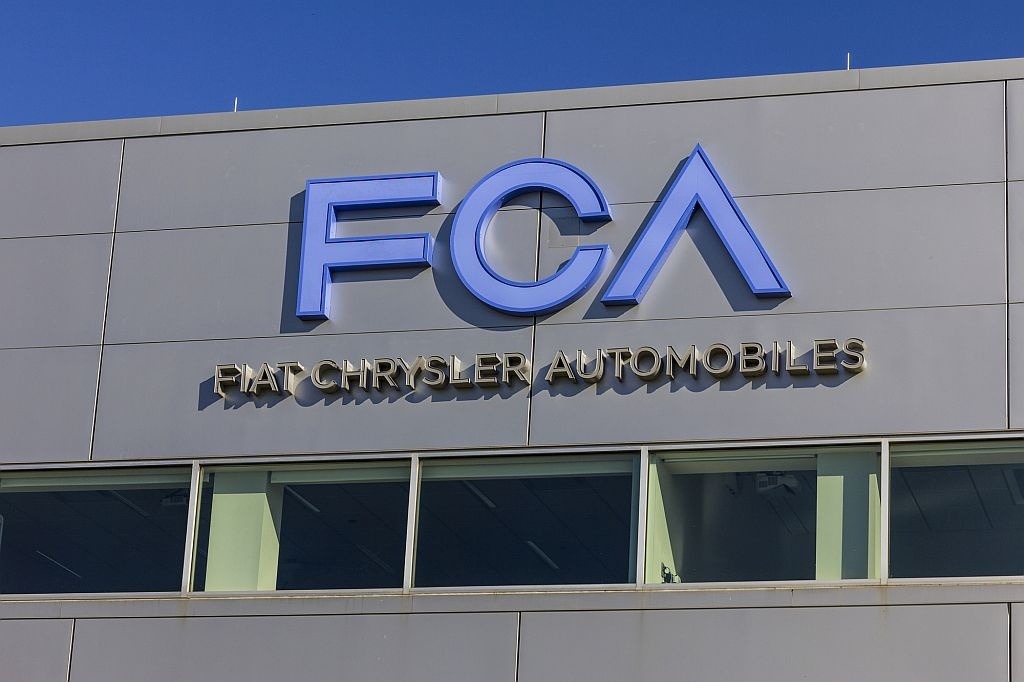



.jpg.8c6c65a5e9e193895b26ed44a0ae841c.jpg)

